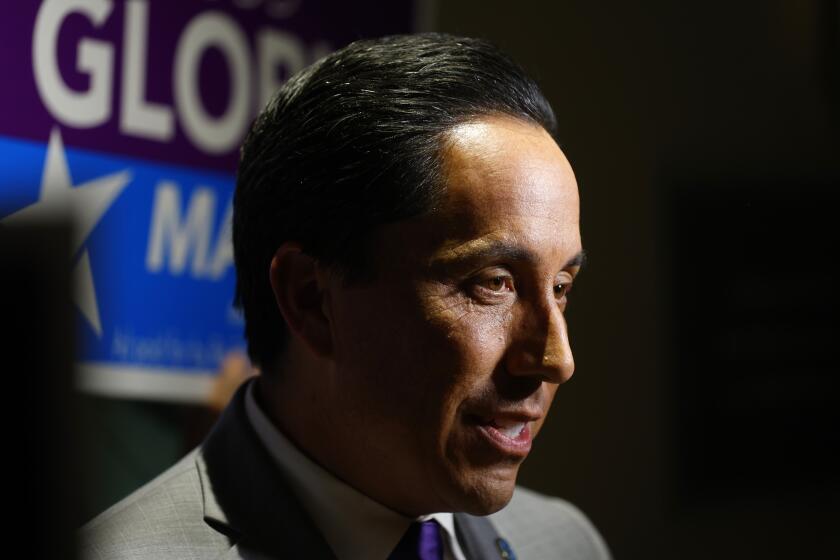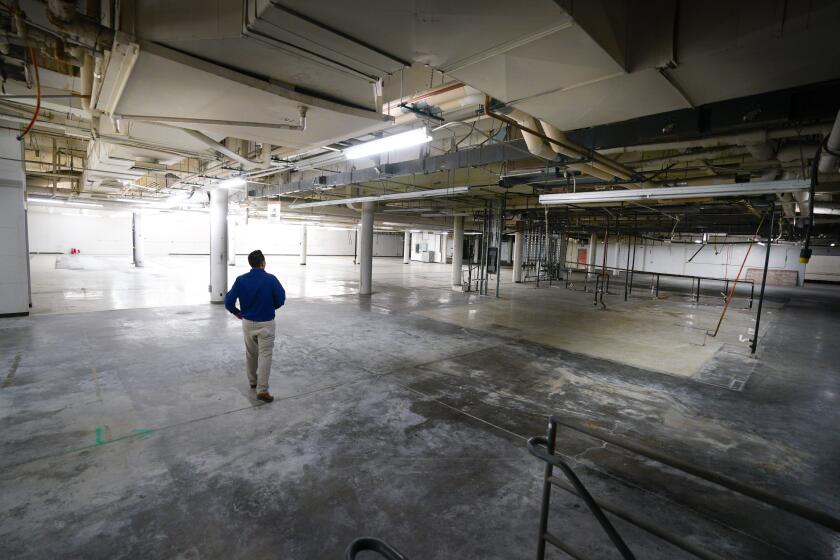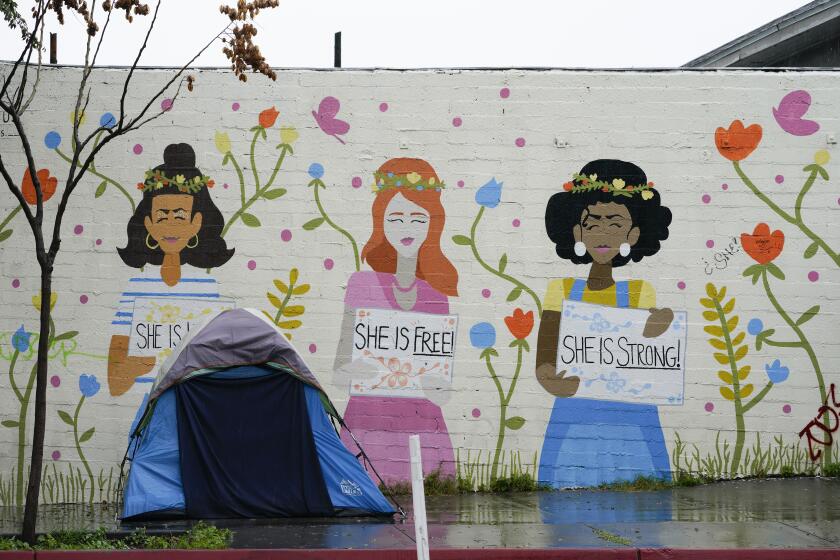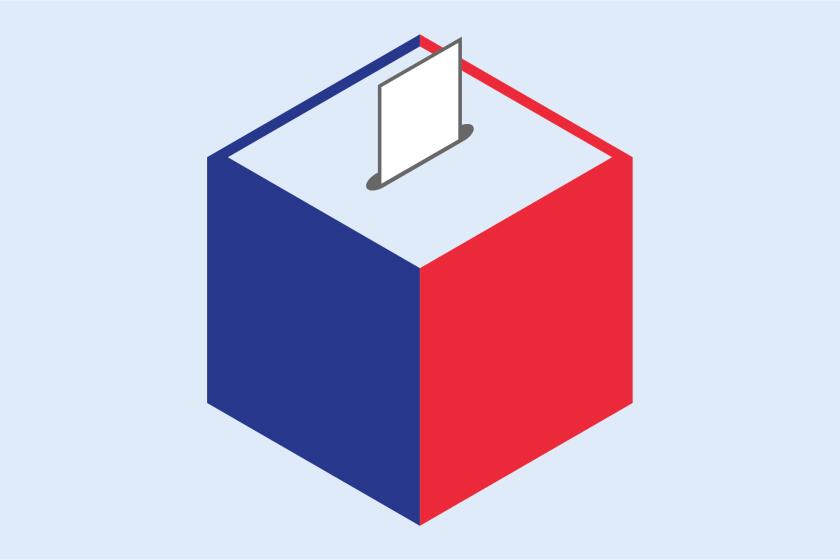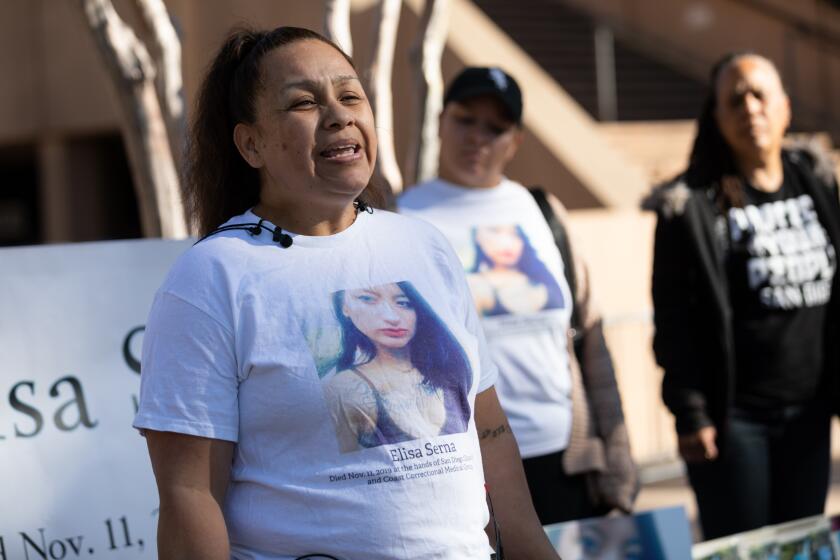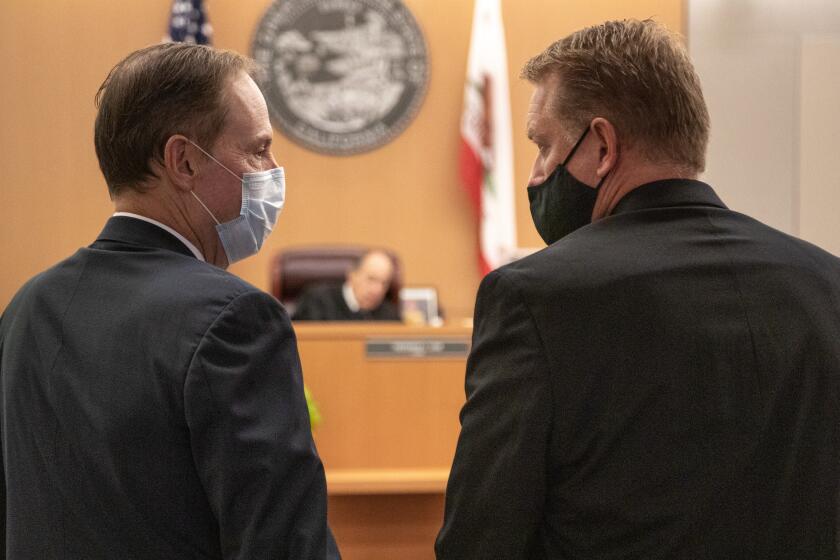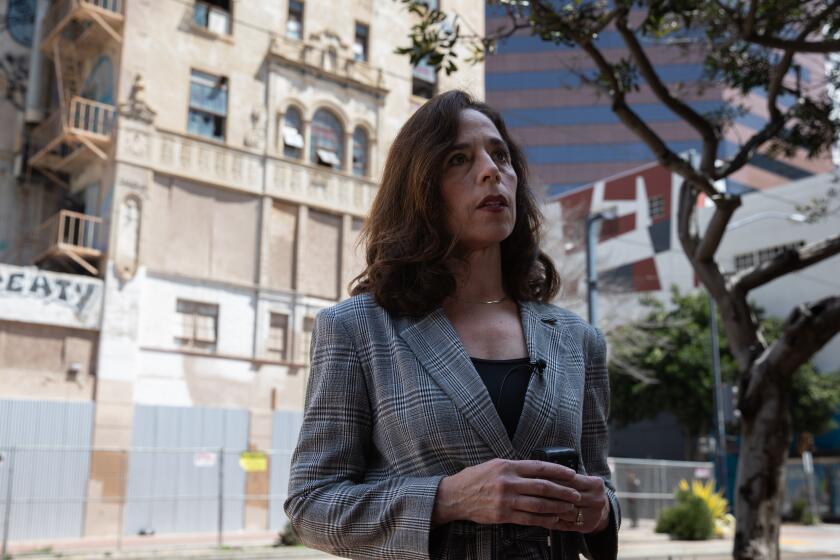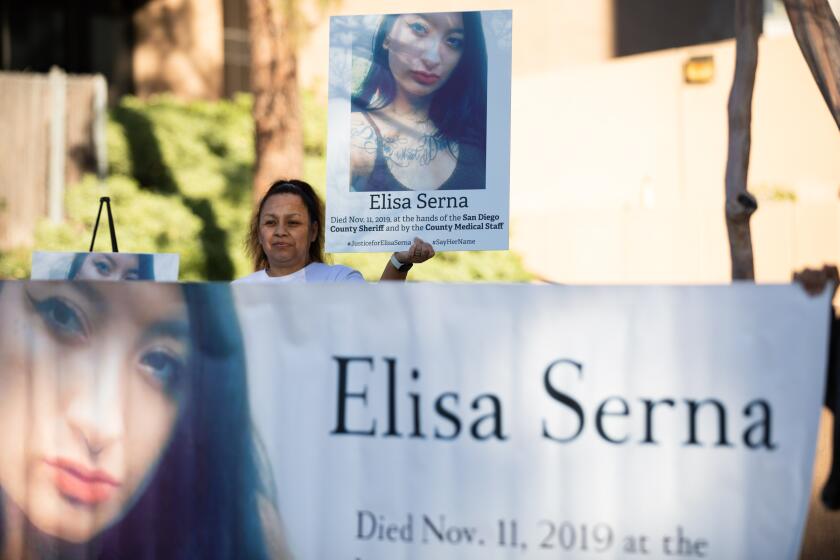‘Kony 2012’ charity is smaller, but still going
Eighteen months after announcing it was closing shop in San Diego and winding down U.S. operations, the charity known as Invisible Children is still operating, although not at the levels of its heyday.
The charity continues to receive donations on its website, raising more than $2 million last year — far less than the $26 million received in 2012.
The group says it is still funding relief programs in Africa, such as trauma healing, community resilience and peacebuilding.
Previously
As revenue grows, group's Africa aid falls
Artisan says Invisible Children took her idea
'Kony' filmmaker involved in PB commotion
'Reactive psychosis' blamed for Kony filmmaker meltdown
“We also provide one-time and micro grants to support transit centers, vocational trainings for formerly abducted persons or those affected by violence,” Chief Operating Officer Andrea Ramsay said.
In December 2014, halfway through the fiscal year, Invisible Children announced it would be winding down.
“We’re firing ourselves, but we’re not quitting,” the group’s leaders said in a statement.
On Invisible Children’s most recent tax filing, its address was listed as a Washington D.C. post office box. The filing says that, during the tax year that ran from July 2014 to June 2015, the group continued to pay a small staff.
Lisa Dougan, who is listed as working 45 hours a week as the Invisible Children chief executive officer, received $55,000 for the year.
The tax filing also lists pay for three people listed as board members, generally a volunteer position at a non-profit. Ramsay said the income was for work when the three were on staff early in the tax year.
The three were Jason Russell, the former San Diego State University film student who co-founded the nonprofit after a trip to Africa, who was paid $140,000 last year; Ben Kesey, former CEO, who was paid $98,000; and Noelle West, who started in the art department a decade ago and was paid $54,000.
“As volunteer members of the board of directors, they have received zero compensation,” Ramsay said.
The filing also lists $34,000 paid to “disqualified persons.” That term is defined in the federal tax code as officers, executives and other decision-makers, as well as their family members, for whom high salaries might be a conflict of interest because of their role in setting salaries.
Over the past five years, Invisible Children reported $8 million in payments to disqualified persons. Ramsay said that compensation was listed in error and that money actually paid salaries of other employees.
Charity experts say using charitable donations to pay board members and other disqualified persons would not adhere to best practices within the philanthropic sector.
“We believe that the best practice for any board member of a nonprofit organization in California is to protect the public interest,” said Regina Birdsell, chief executive of the Center for Nonprofit Management in Los Angeles.
“This is supposed to be about serving the public,” she said. “It’s not supposed to be a revenue opportunity for board members.”
Joe Lumarda, an investment counselor from Los Angeles who serves on numerous charity boards, said he has never heard of a nonprofit group reporting so much money in payments to disqualified persons.
“I don’t even see a lot where there are amounts listed in there at all,” he said. “It’s a red flag, definitely. The IRS puts those lines in there for a reason. In relation to the overall budget, it would be cause for further questioning.”
Invisible Children was established in 2003 to help victims of Joseph Kony, the African strongman and leader of the Lord’s Resistance Army, or LRA.
Russell and Invisible Children conducted educational workshops and produced films in order to raise awareness of the LRA, which has been accused of mass killings, torture and other atrocities over the past three decades.
A marketing campaign the charity launched in March 2012 became a global sensation with the 30-minute film “Kony 2012,” which has been viewed more than 119 million times online.
The San Diego nonprofit was thrust into a media spotlight that generated significant interest and support from the public, along with both praise and criticism from more established non-governmental organizations.
Invisible Children reported revenue of more than $40 million in the two-year period ending June 30, 2012, and the attention took its toll.
That spring, co-founder Jason Russell suffered a very public mental breakdown in Pacific Beach. He went into treatment and returned to work some months later.
At one point in 2012, the celebrity website TMZ posted a 52-second video of Invisible Children director Jedidiah Jenkins drinking from a vodka bottle, slurring his words and boasting about keeping the majority of a $1 million donation for himself.
“I don’t know if you heard this or not but we won a, we won a million dollars, so ... That’s pretty rad,” Jenkins said to the camera. “Here’s $100,000 for Haiti and $900,000 extra for me. Get on the bandwagon.”
A New York public relations firm hired by the charity issued a statement saying the video was “a silly and unfortunate joke.”
The group tried to keep the focus on Kony and the cause of helping victims of torture, abuse and kidnappings.
“We need to live intentionally for the betterment of other people, whether they are across the street or across the world,” Kesey told The San Diego Union-Tribune in a 2012 interview.
By 2014, the group announced plans to wind down. According to its tax return, which is required to be released in exchange for tax-exempt status, Invisible Children had net assets of less than $868,000 on June 30, 2015.
The charity directed millions of dollars to non-governmental organizations in Africa, where the rules over transparency and accountability for such groups are not as strict.
The grants to unidentified groups in sub-Saharan Africa were used to “rehabilitate children directly affected by the LRA” and to “work with regional partners to build and expand systems that warn remote communities of LRA attacks,” the latest tax filings state.
Ramsay said the nonprofit continues to perform meaningful work.
“Over its 10-plus-year history, Invisible Children has seen incredible success in the dismantling of the LRA, with the organization’s counter-LRA programs contributing to a 92 percent reduction in LRA killings and a 75 percent reduction in the core fighting force of the LRA,” she said.
The latest tax filing shows Invisible Children has been liquidating its assets — selling off vehicles, computers and other equipment to people and organizations. The group also disposed of cameras, microphones, flat-screen cinema panels, routers and other equipment.
Some of the people who got Invisible Children property are listed with contact information that matches the charity’s Washington D.C. post office box.
According to an independent financial statement for the year ended June 30, 2015 posted on the Invisible Children website, the charity is not folding anytime soon.
“As part of the restructure, the organization was able to adjust its funding model to successfully obtain funds and continue program operations,” the report states. Last year “the organization was able to secure two contracts, which as of the report date, have successfully been renewed for an additional year.”
Get Essential San Diego, weekday mornings
Get top headlines from the Union-Tribune in your inbox weekday mornings, including top news, local, sports, business, entertainment and opinion.
You may occasionally receive promotional content from the San Diego Union-Tribune.



